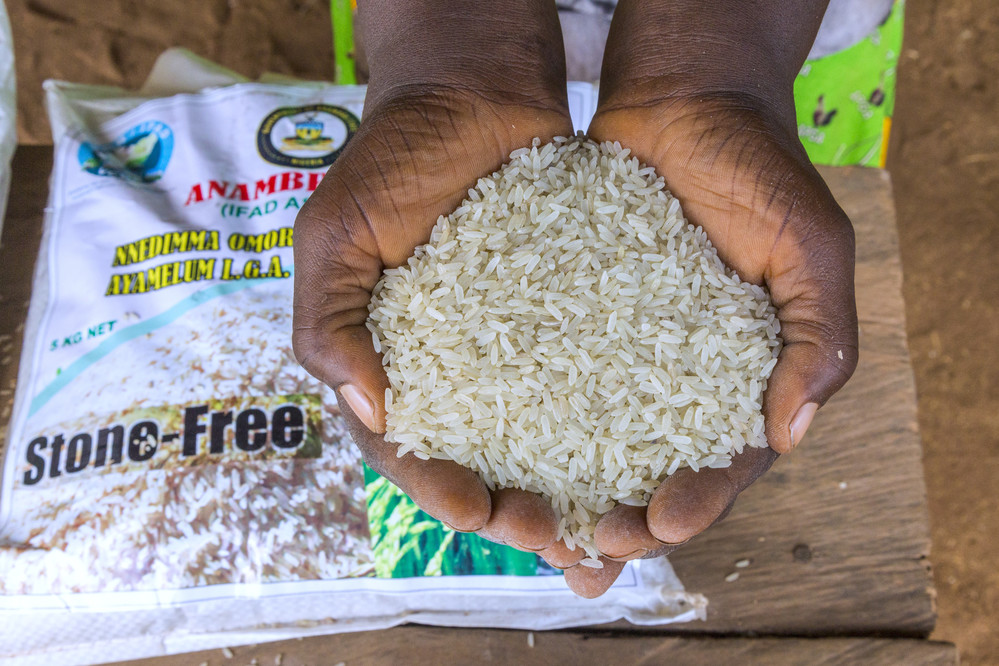
About the event
The past few years have seen growing interest from impact investors in food and agriculture, as documented in the annual surveys of the Global Impact Investment Network. In parallel with this trend, development finance providers, impact investors, and experts have begun to work on impact measurement approaches that can capture in a robust way the contribution of impact finance to the achievement of the Sustainable Development Goals in this sector. Despite such efforts, by and large these approaches are still at an early stage of development, where it is of critical importance to learn from the experience of financial vehicles that have a clear learning agenda around impact in the agri-food space.
The Yield Uganda Investment Fund is one such vehicle, sponsored by IFAD in partnership with the European Union and the National Social Security Fund of Uganda and managed by Pearl Capital Partners. The Fund was designed to stimulate the growth of agri-SMEs by providing them with patient risk capital products including equity, quasi-equity and debt. To effectively measure both financial returns and impact on its target group, the Fund has adopted an integrated set of tools that include a third party impact monitoring tool, the monitoring and evaluation systems of IFAD and of the fund manager, and a rigorous impact assessment.
The ongoing impact assessment includes five of the Fund’s investee agro-SMEs and looks at data from smallholder farmers linked to the investees and also from non-beneficiary households, which is collected at baseline and about five years after investment. The results of the assessment will provide robust evidence of attributable social returns, and when combined with the Fund’s monitoring tools it will generate important lessons for future impact investments in the sector.
In this webinar, Aslihan Arslan, Senior Economist in the Research and Impact Assessment Division and Dagmawi Habté-Selassié, Programme Officer in the East and Central Africa Division of IFAD will present the methodology of this impact assessment, discuss already completed baseline studies and highlight the next steps in this innovative approach to assessing the effectiveness of impact investments in agriculture.
Speakers
Aslihan Arslan, Senior Economist at IFAD
Aslihan Arslan is a Senior Economist at the Research and Impact Assessment Division of the International Fund for Agricultural Development (IFAD). She leads multiple research projects on various topics including agricultural productivity, climate resilience, rural transformation, rural out migration and climate change. She also leads a number of impact assessments of IFAD projects related to these themes. She has co-lead the Rural Development Report 2019 Creating Opportunities for Rural Youth. Prior to joining IFAD in 2017, Aslihan worked as a Natural Resource Economist at the Agricultural Development Economics Division (ESA) of FAO, where she worked primarily on Climate Smart Agriculture. Before that, she worked a Post-Doctoral Research Economist at the Kiel Institute for the World Economy in Germany, where she conducted research on migration, inequality and poverty, as well as the impacts of trademarking on Ethiopian coffee prices. She holds a PhD in Agricultural and Resource Economics from the University of California at Davis.
Dagmawi Habté-Selassié, Programme Officer at IFAD
Dagmawi has over nine years of professional experience working in private finance and international development. Most recently, Dagmawi was the technical specialist working in setting up the Smallholder Agri-SME Finance and Investment Network (SAFIN) which aimed to foster more effective and inclusive ecosystem for agri-SME finance. He is now leading IFAD’s engagement in the Yield Uganda Fund in Kampala, an equity fund investing in Ugandan agro-SMEs. He also held various positions at the institution in Rome, South Sudan and Ethiopia, including as task manager for the RUFIPII project in Ethiopia, a US$252 million partnership between IFAD, Commercial Banks and the Government of Ethiopia. Prior to development work, Dagmawi spent a number of years working in the private sector in pension administration as well as retail management position in Canada. He holds a Graduate Diploma in International Business Management from McGill University and Master’s Degree in Management of Development from the Università degli studi di Torino.
Resource materials
Presentation
Recording

Event Details:
Event dates: Mar 26, 2020, 2:00 PM – 3:00 PM GMT+1
Location: Webinar
Organizer: SAFIN